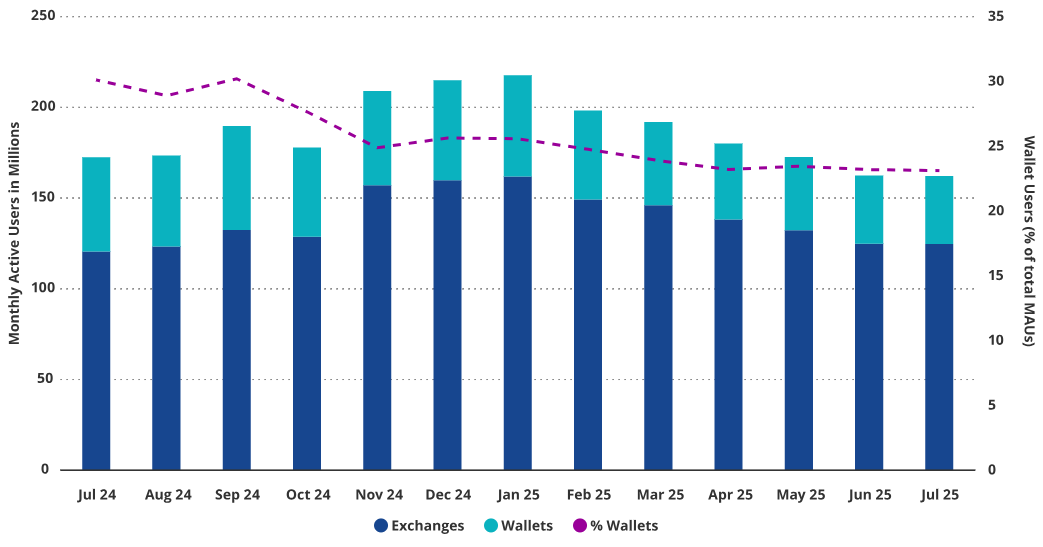
Only 23% of Bitcoin users prefer self-custodial wallets
VanEck recently published a chart showing that only 23% of Bitcoin transaction addresses belong to personal wallets. The other 77% are exchange addresses – and their share keeps growing.
It seems most Bitcoin users prefer to move coins from one exchange to another. One possible reason is that AML systems tend to trust exchange addresses more than addresses with unknown owners.
If you send Bitcoin from your own address, the transaction might immediately be flagged as high-risk – and then you’ll have to prove the funds are clean. It’s much easier to send from an exchange, where any recipient will see the funds as “clean” by default.
When this attitude toward personal wallets first started to take hold, I thought it couldn’t last. After all, it essentially splits the entire Bitcoin supply into two groups:
- coins on exchanges
- and everything else
The first group could only grow with newly mined coins, while the second group could grow with both newly mined coins and those moving out of exchanges. If distrust of non-exchange addresses kept increasing, moving coins back from the second group into the first would eventually become difficult. That would mean the first group would shrink over time, and the second group would end up containing almost all Bitcoin in existence.
But VanEck’s chart suggests I was wrong – personal wallets are being used less and less.
Still, I believe that self-custody is one of the most important freedoms cryptocurrency offers – right alongside the ease of transferring funds. At rabbit.io, we treat exchange and non-exchange addresses the same way. In fact, the vast majority of our clients send us crypto from their personal, non-custodial wallets – and receive it back into other personal wallets they control.













